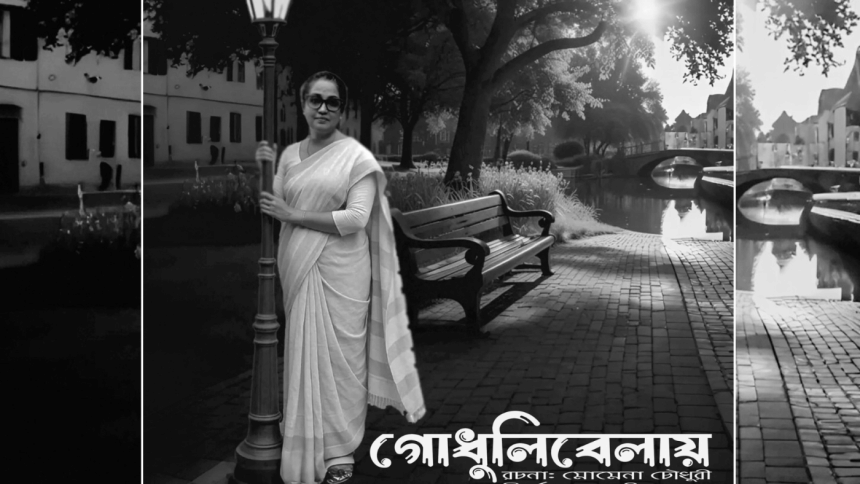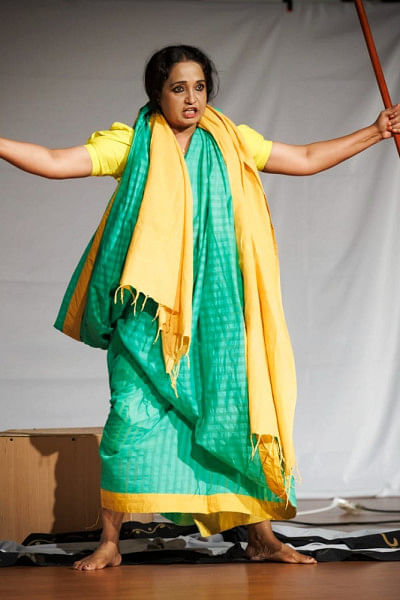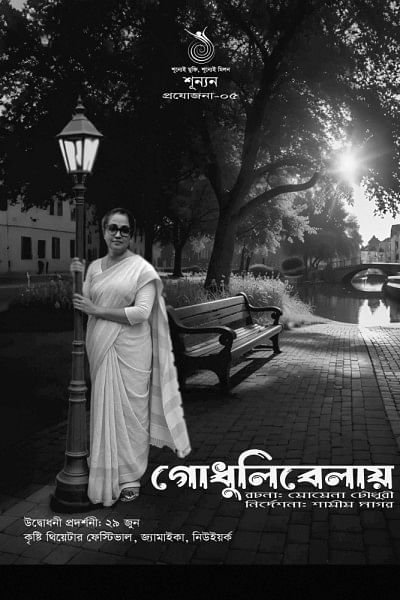Momena Chowdhury’s ‘Godhulibelay’ stages a quiet rebellion in New York

In a haunting and intimate return to stage, Momena Chowdhury delivers a powerful solo performance in "Godhulibelay", a new play by Shunyan Repertory Theatre that premiered this week in New York. Directed by Shamim Shagor and written by Momena Chowdhury herself, the production offers a layered exploration of memory, silence, and a woman's quiet defiance against a lifetime of emotional erosion.
The play opened to an engaged audience in New York and will see two follow-up performances—on July 6 in New Jersey and July 12 in Long Island. Both shows are part of Shunyan's ongoing effort to use theatre as a tool for social reflection rather than mere entertainment.

Set on the day of her 50th wedding anniversary, "Godhulibelay" ("At Dusk") follows a woman as she slips into a realm of memories. As the past unfolds, so do long-repressed traumas, losses, and the burden of unvoiced pain. Through these recollections, the audience is led beyond domestic rituals and into the intimate, often invisible, corners of a woman's life—one shaped by sacrifice, denial, and restrained protest.
"This play brings to light what we often suppress," said Momena Chowdhury in a statement ahead of the show. "A woman's body, dignity, dreams, and humiliation—these are not abstract ideas. They live with us. Godhulibelay throws these realities back at the audience, and if it gives even one woman the courage to express what she's held back, I'll consider it a success."

The production is minimalist in its structure but rich in texture. Shagor's direction steers clear of the literal, instead leaning into a blend of sound, silence, shadow, and abstraction. "This isn't simply a character's monologue," said the director. "It's a symbolic protest against systemic silence and the erasure of justice. The language of this play is visual, poetic, and deeply reflective."
Founded in 2011 under Momena Chowdhury's leadership, Shunyan Repertory Theatre has consistently prioritised works rooted in social justice, women's rights, and humane values. "Godhulibelay" continues that tradition, offering a script and performance that resists melodrama in favour of precision and depth.

 For all latest news, follow The Daily Star's Google News channel.
For all latest news, follow The Daily Star's Google News channel. 








Comments